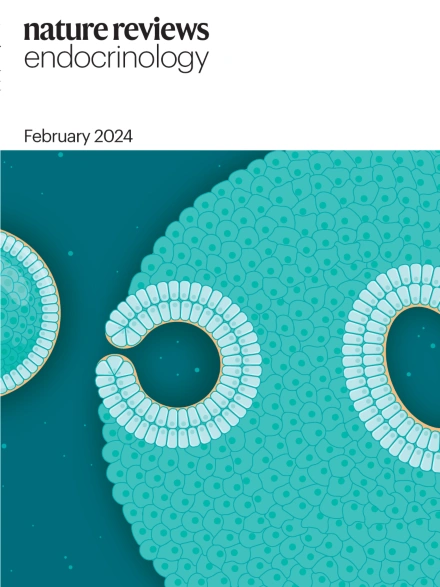Reply to ‘Ensuring diverse representation and minimizing conflicts of interest in clinical practice guidelines’
IF 40
1区 医学
Q1 ENDOCRINOLOGY & METABOLISM
引用次数: 0
回复“确保临床实践指南中的多样化代表和最大限度地减少利益冲突”
感谢您周到的来信(舍尔哈斯,A.等)。在临床实践指南中确保多样化的代表和最大限度地减少利益冲突。纳特,内分泌专家。https://doi.org/10.1038/s41574-025-01122-y(2025))1关于软骨发育不全患者实施和监测vosoritide治疗的最新指南(Savarirayan, R.等)。关于软骨发育不全患者实施和监测沃索里肽治疗的国际共识指南。纳特,内分泌专家。https://doi.org/10.1038/s41574 - 024 - 01074 - 9(2025)) 2。Vosoritide现已在50多个国家用于治疗软骨发育不全儿童。这些指南的核心目的是为医生提供基于证据和经验的建议,以帮助他们在软骨发育不全的家庭和/或儿童认为合适并提出要求时,明智地开始、负责地监测和适当地停止vosoritide治疗。这些指南并不是为了推广这种药物的使用,建议R10指出“应该认识到并完全支持并非所有患者及其护理人员都会决定接受治疗(强烈建议,德尔菲100%)”。该共识小组的许多成员也是发表关于软骨发育不全患者的诊断、多学科管理和终身护理国际指南的小组成员,该指南旨在促进对这些患者的多学科、全面和循证护理。正如致谢中明确指出的那样,“BioMarin没有参与指南制定小组的选择、指南范围的确定、投票过程、结果分析或提交稿件的准备。”共识小组的许多成员是评估vosoritide在临床试验中的安全性和有效性的关键人物,根据期刊政策,在共识声明被委托之前,这些都是完全公开的。所有专家小组的选择可能存在固有的偏见和冲突;除了我们在软骨发育不全患者的治疗和管理护理方面的综合经验(290年)外,我们还通过使用独立的绘图工具4来为专家小组的选择提供信息,以尽量减少这种偏差。
本文章由计算机程序翻译,如有差异,请以英文原文为准。
求助全文
约1分钟内获得全文
求助全文
来源期刊

Nature Reviews Endocrinology
医学-内分泌学与代谢
CiteScore
42.00
自引率
0.70%
发文量
158
审稿时长
6-12 weeks
期刊介绍:
Nature Reviews Endocrinology aspires to be the foremost platform for reviews and commentaries catering to the scientific communities it serves. The journal aims to publish articles characterized by authority, accessibility, and clarity, enhanced with easily understandable figures, tables, and other visual aids. The goal is to offer an unparalleled service to authors, referees, and readers, striving to maximize the usefulness and impact of each article. Nature Reviews Endocrinology publishes Research Highlights, Comments, News & Views, Reviews, Consensus Statements, and Perspectives relevant to researchers and clinicians in the fields of endocrinology and metabolism. Its broad scope ensures that the work it publishes reaches the widest possible audience.
 求助内容:
求助内容: 应助结果提醒方式:
应助结果提醒方式:


